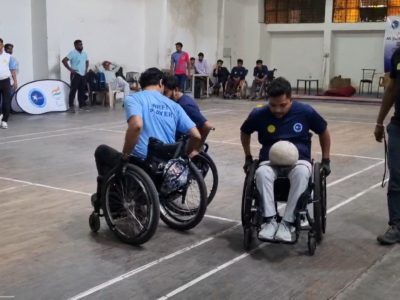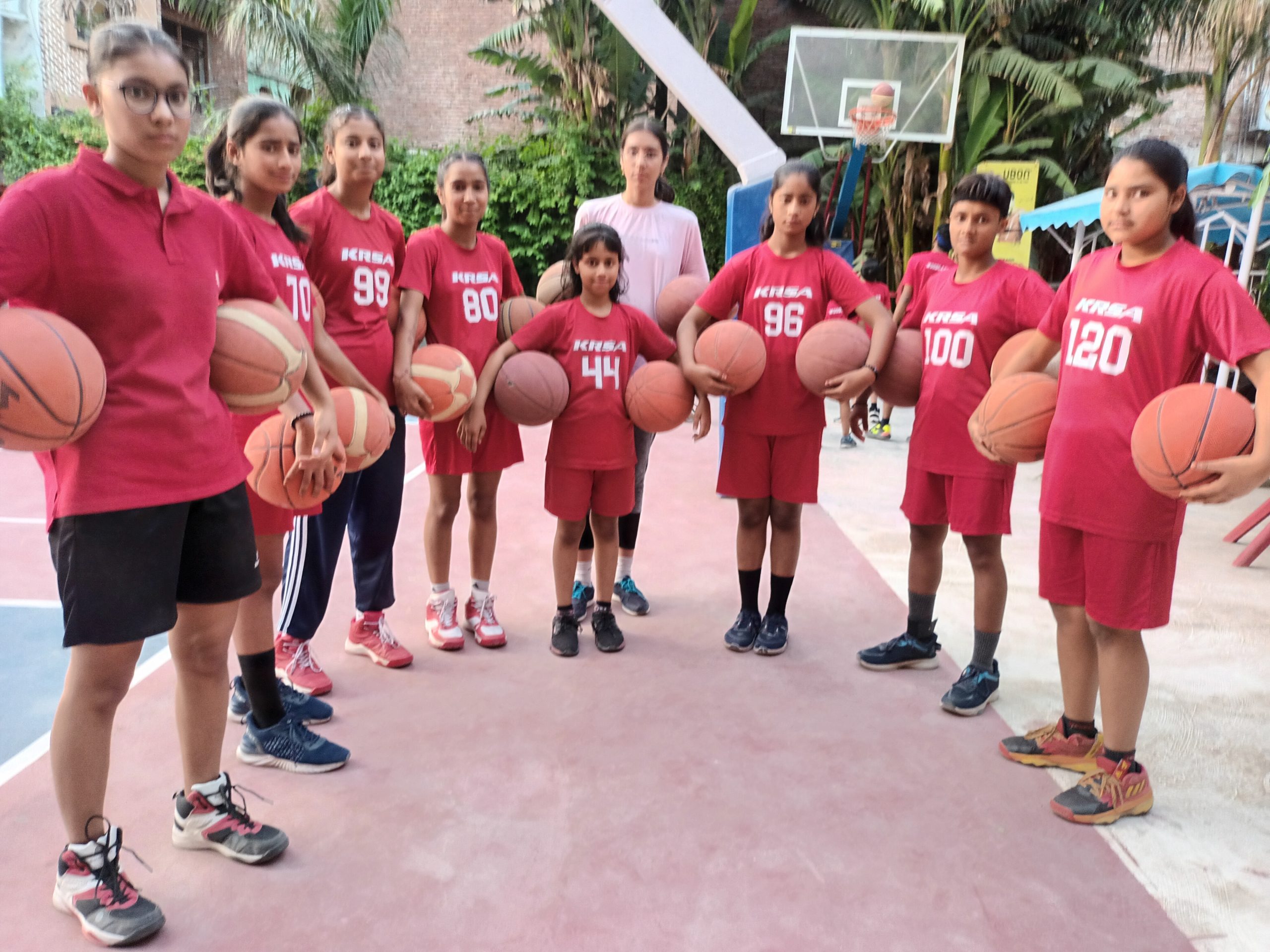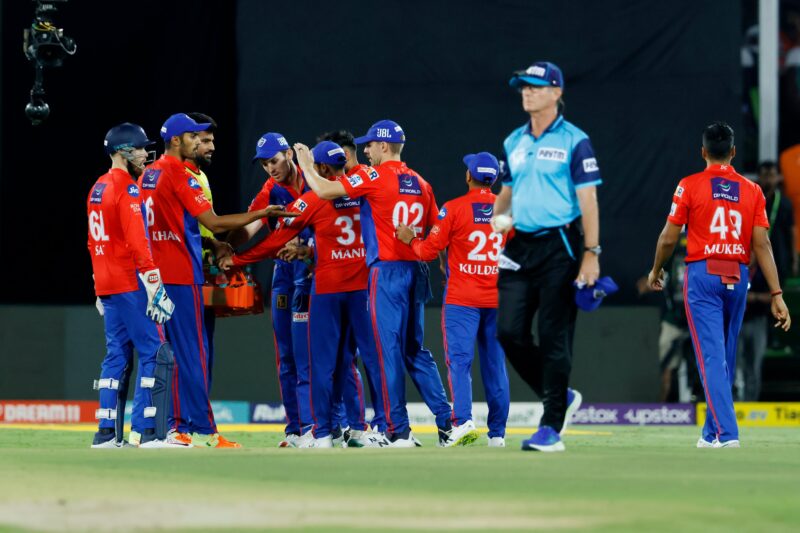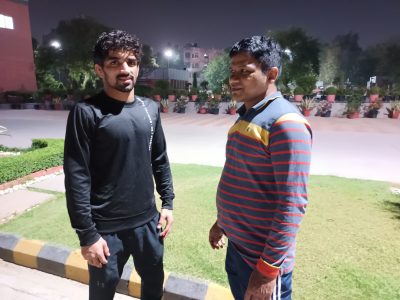The IPL is set to move to the UAE amid the growing Coronavirus pandemic in India. From franchises to commentators, everyone is gearing up for a new experience. Is this move worth it?
Ever since the Coronavirus pandemic brought sports to a halt in March, the Indian Premier League has been the focal point of discussion in the cricketing fraternity for many. It was supposed to begin on 29 March and the eagerness of the BCCI to stage it as soon as possible has been obvious.
On Monday, IPL Governing Council chairman Brijesh Patel said that this year’s edition of the T20 tournament will be held in the United Arab Emirates, once the Indian government gives its approval.
“The IPL Governing Council will meet within a week or 10 days and all decisions [including the final schedule] will be taken then. As of now, the plan is to have a full-fledged IPL comprising 60 games and most likely in the UAE,” said Patel.
The IPL is the BCCI’s biggest revenue earner. The board would lose close to Rs 4,000 crore if the tournament didn’t go ahead this year.
This is why Patel’s statement just a day after the announcement of this year’s T20 World Cup being postponed comes as no surprise. The BCCI was waiting with bated breath for the ICC to make this decision so that it could lock a window for the IPL without further ado.
While the possibility of the IPL happening in a few months from now will surely be music to cricket-starved fans’ ears, the big question is –- why choose an outside venue?
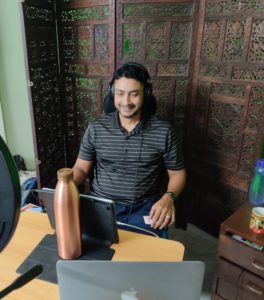
Two weeks ago, in an interview with a leading sports channel, here’s what BCCI president Sourav Ganguly had to say about hosting IPL 2020:
“We want to have the IPL, it is the most important part of our domestic season. Cricket needs to be back. Our first priority is hosting it in India. Even if we get 35-40 days, we’ll host it. Places like Mumbai, Delhi, Kolkata and Chennai have big teams in the IPL.
“But I don’t think at this stage you can put your hand to your heart and say that cricket will happen in these places. So it isn’t easy to say at this point that we will host the IPL in India.
“Let me put it this way. We first have to find a window, after which the priority will be having it in India, and finally we will consider taking it somewhere outside. But where can we go? Because having the IPL outside is very expensive for everyone –- the franchises and the board. The currency conversion becomes very, very expensive. So, we are monitoring the situation and are very keen to host it. We don’t want the year 2020 to finish without an IPL.”
From Ganguly’s statement, it is evident that hosting IPL 2020 in India was indeed a priority for the BCCI. So, what has changed in the past two weeks?
Perhaps, it is the government that is not in favour of having the tournament in India since plenty of Covid-19 cases continue to come up each day across the country, and its reputation would be ruined if foreigners are infected.
Be that as it may, the organisers seem to have erred in their decision-making to move the thirteenth edition away from India.
One of the reasons Ganguly mentioned for considering an outside venue is the number of Covid-19 cases in the big metropolitan centres. But if the government and the BCCI were indeed keen to host the IPL in India, then they could have looked at one of the many smaller cities in the country, which don’t have nearly as many cases but have multiple cricket grounds.
When having spectators in the stadiums is not an option and all the matches will be televised, how does it matter which ground a match is played on?
Perhaps, one option that could have worked was to pick a small city with fewer Covid-19 cases and station the teams at designated sanitised hotels for the entire tournament.
The big challenge then would be to create a bio-secure environment for everyone involved in the tournament. Are the government and the BCCI convinced that that is impossible to do so in India? The tournament is likely to commence towards the end of September, which is two months from now: isn’t that enough time to figure out all the necessary protocols for the bubble?
England and its cricket board are putting forth a fine example in this regard. They have strict health safety procedures in place for the ongoing Test series involving West Indies, with regular testing of everyone involved, and have even committed to hosting Pakistan and Ireland next month.
Cricket Australia has said their representatives are in constant touch with members of the England and Wales Cricket Board to understand their methods. Australia is set to host India later this year, along with the Big Bash League and the WBBL, and are evidently putting in all possible efforts in order to organise tournaments that are safe for all.
Not just the Test series in England, there are a number of sporting leagues that are well on their way in different parts of the world. European club football, for instance, has been up and running since May. Even the NBA is set to resume towards the end of July.
In that perspective, in a large country like India, and a league like the IPL which represents the different cities of India, could have been held in the country it is meant to be if the authorities tried a bit harder.
The franchises prepare
An official of the Delhi Capitals said that they have already started planning the logistics and have zeroed in on the hotel they wish to stay at in Abu Dhabi and how exactly they will train and prepare for the 13th edition of the league.
“You need to be smart and plan early. We have been given the required inputs and are planning accordingly. We have actually decided on the hotel we wish to stay at in Abu Dhabi and how we will go through the process of flying in and going through the necessary quarantine period once in UAE. We will obviously need to brush up with the then health guidelines of the country,” the official said.
Another official of the Kolkata Knight Riders said that they are looking to get an isolation period done in India before heading off to UAE. “We are looking at having the boys come together in India. Go through a period of spending time in a bio-secure environment and then get our tests done and head to UAE.
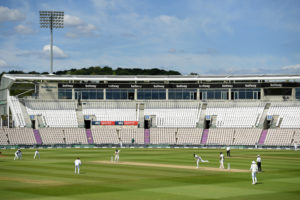
“The reason behind that is we are all staying at home. So, if one of us is asymptomatic, we have the risk of infecting others. That is why it is better to go through a couple of weeks of isolation and testing here in the country before heading out,” the official explained.
Asked about the travel plan, an official of another franchise said that chartered planes are the most viable options as normal flight schedules may or may not start and each team will have around 35-40 people travelling as a unit.
“I think most teams, if not all, are already looking at hiring chartered planes. You never know if we will have regular flights operating by the end of August and most teams would wish to be in the UAE by the last week of August or at max the first week of September. So, in such a scenario, the best way is to hire chartered planes as we will all have around 35-40 people flying to UAE. The number of members obviously increases a bit when you are headed outside and have restrictions in movement in times like these,” the official pointed.
Another franchise official, though, begged to differ and said that they are still looking at first-class travel if flights start operating as the franchise isn’t looking at any grouping in India and want the assembling to happen directly in the UAE.
“To be honest, if you ask me, we as a franchise are looking at first-class travel for our players as that means better distancing. The sole reason is that we might not be assembling in India and be directly heading to UAE from each of our homes after doing necessary COVID-19-related tests. So, in such a scenario, you cannot expect the owners to pay for 8-10 chartered trips. But yes, if normal flights don’t start operating then it is a different scenario,” the official said.
But all franchises are on the same plane when it comes to having foreign players head straight to UAE rather than first assemble in India, undergo quarantine formalities in this country and then follow the same in UAE.
“We have been having our calls and discussions on how we are all planning the logistics and stuff and I can assure you almost all of us are of the opinion that foreign players will meet the teams directly in UAE as that makes more sense. Imagine someone first coming to India, spending 10-14 days in quarantine over here and then again heading to UAE and going through their quarantine process. Foreigners are likely to join in directly unless some franchises change any plan in the eleventh hour,” the official said.
Virtual commentary the way ahead?
The IPL broadcaster, Star Sports is toying with the idea of introducing “virtual commentary” in the upcoming tournament after being emboldened by its recent successful experiment in a 36-over exhibition tournament in South Africa featuring three teams.
For a live game at Centurion Park in Johannesburg on July 19, Irfan Pathan was doing commentary from his Baroda home, Deep Dasgupta from Kolkata and Sanjay Manjrekar from his Mumbai residence.
Asked about being able to commentate from his home for a game taking place thousands of kilometres away, former India all-rounder Pathan called the experience nothing short of “magical” in an interview
It was not just the commentators as the crew also logged in from all parts of the country with the director sitting in Mysore.
The experiment was fairly successful, notwithstanding a few teething issues. It could be a regular feature in the upcoming IPL, if not for the main feeds in Hindi and English, at least for growing regional feeds like Tamil, Telugu and Kannada to start with.
“It was an extraordinary experience though we were worried throughout because internet speeds can fluctuate and that affects the voice quality. Anything can happen anytime in live cricket and with technology not fully in your control, it can be tricky but Star did a wonderful job,” Pathan said in the interview.
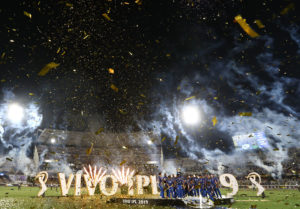
“Though this was an exhibition game, everyone took it very seriously as they all wanted the show to resume.”
“Star is usually very thorough with its planning and execution but commentary from home in the IPL will be a massive challenge,” said the former pacer, who had to lock himself in a room to not get distracted on the job while his son knocked on the door from time to time.
The idea of commentary from home was created out of necessity amid the current Covid-19 situation, ensuring not just safety of the commentators but also cost effectiveness.
Pathan feels there is no substitute to commentary from the ground but part of the panel commentating from a remote production facility in Mumbai during the IPL is not new and is something that was implemented successfully last year.
The broadcaster produces as many as 10 feeds for the IPL with Hindi accounting for two-third of the overall viewership.
An official from Star Sports said that commentary from “anywhere in the world” can be a regular feature going forward.
“Remote production has evolved a lot, and technology has enabled it to be at par with on-site production, if not better. Commentary from home is a step forward in that regard and that way anyone can log in from anywhere. It opens up to the world to you”, he adds
“Being on the ground is important but when you have a production in place where the commentator could see everything that he would see from the ground, at times with as many as 25 camera angles at his disposal, he can even see more than he would normally see at the ground,” the official stated.
For the 3TC Solidarity Cup in South Africa, there was no option but to commentate from home. Considering that internet connectivity is not the best in India, all commentators had their internet speeds upgraded from 5 mbps to 20 mbps, which is a minimum requirement for live production.
It is much easier to be in sync when you are sitting next to each other while commentating and creating the same chemistry was a challenge from home, said Pathan.
“We rehearsed it a day before the game just to test internet quality. We had screens put, but we could not see each other at all times, so when to pause and when to start talking was a challenge but we pulled it off. At times, there were delays in the feed, so there could be overlapping in that scenario. Overall, we did alright but when you are on the ground, it takes your commentary to the next level”, said Pathan
“Commentary is not just about the game anymore it is all about the cricketers. There is so much detailing and analysis nowadays. Commentary from home is surely an option but not sure how often we can use it,” added Pathan.
(Cover: The IPL trophy // Photo: BCCI)


